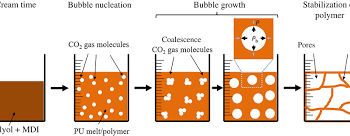Ending a marriage or a long-term relationship is never an easy decision. Along with the emotional challenges, financial stability often becomes a major concern for one or both partners. When a couple separates, one spouse may find themselves in a weaker financial position, especially if they had been dependent on the other for income or had given up their career to focus on family responsibilities. This is where spousal maintenance plays an important role. Spousal maintenance, also known as alimony, is a financial arrangement ordered by a court or agreed upon between the separating partners to provide ongoing support to the financially weaker spouse. It ensures that both individuals can maintain a reasonable standard of living while they adjust to their new circumstances. Understanding the benefits of spousal maintenance for financial support helps both parties see how it creates balance, fairness, and stability during and after a divorce or separation.
- Providing Financial Stability During Transition
One of the most significant benefits of spousal maintenance is that it provides immediate financial stability to the spouse who earns less or has no independent income. After a separation, expenses such as housing, bills, food, and healthcare can become overwhelming. Spousal maintenance acts as a safety net, helping the dependent spouse meet their essential needs while they transition into their new life. This support prevents sudden financial hardships and ensures that both individuals can maintain a level of dignity during the difficult phase of separation.
- Supporting Career Development and Education
In many relationships, one spouse may have put their career on hold to care for children or support the other partner’s professional growth. Spousal maintenance gives them the time and resources to rebuild their careers. It can cover costs for education, training programs, or skill development courses that improve employment prospects. This not only benefits the recipient spouse but also encourages self-reliance in the long run, reducing future financial dependency.
- Protecting Children’s Well-Being
While spousal maintenance is different from child support, it indirectly benefits children in many cases. When the custodial parent receives financial support, they can provide a stable and nurturing environment for their children without constant financial stress. It allows them to focus on parenting rather than worrying about how to cover everyday expenses. This stability creates a healthier atmosphere for the children, helping them adjust better to the changes in family structure.
- Maintaining a Fair Standard of Living
Divorce or separation should not leave one partner drastically disadvantaged compared to the other. Spousal maintenance helps maintain a fair balance by ensuring that both individuals can continue a reasonable standard of living. Without this support, one spouse might face a severe drop in their quality of life, which could lead to resentment or long-term emotional and financial struggles. By promoting fairness, spousal maintenance allows both parties to move forward on more equal footing.
- Reducing Immediate Financial Conflict
Money is often one of the biggest sources of conflict during and after a divorce. Spousal maintenance provides a structured financial plan that reduces disputes between separating partners. When there is a clear arrangement in place, it minimizes arguments about day-to-day expenses and financial obligations. This clarity helps both parties focus on rebuilding their lives rather than getting stuck in ongoing conflicts about money matters.
- Encouraging Peaceful Settlements
Knowing that spousal maintenance is available can encourage couples to settle divorce cases amicably rather than engaging in lengthy court battles. When one spouse understands that they will receive fair financial support, they are more likely to cooperate during negotiations. This leads to faster resolutions, lower legal costs, and less emotional stress for everyone involved. It also lays the foundation for a more respectful post-divorce relationship, especially when children are part of the equation.
- Providing Emotional Security
Financial worries often add to the emotional burden of a separation. Spousal maintenance provides reassurance to the dependent spouse that they will not be left without resources. This emotional security allows them to focus on healing, regaining confidence, and planning their future without constant fear of financial instability. It is particularly important for individuals who may feel vulnerable after leaving a long-term relationship where they were financially dependent.
- Offering Time for Adjustment
Adjusting to life after a separation takes time, especially for someone who has not been part of the workforce for years. Spousal maintenance offers a period of breathing room, allowing the recipient spouse to slowly adapt to their new situation. They can take the time to search for suitable employment, secure affordable housing, and reorganize their finances. This gradual transition prevents rash decisions driven by desperation and promotes a healthier long-term recovery.
- Preventing Poverty and Public Assistance Reliance
In some cases, the absence of spousal maintenance could force the financially weaker spouse into poverty or dependence on public welfare systems. By providing private financial support, spousal maintenance helps reduce the burden on government assistance programs. It ensures that individuals have a sustainable source of income to meet their basic needs, which benefits not only the recipient but also society as a whole.
- Promoting Responsibility and Accountability
Temporary spousal support in Dubai reinforces the idea that both partners share responsibility for the consequences of their relationship. It acknowledges the sacrifices and contributions made by the dependent spouse during the marriage, whether through homemaking, childcare, or supporting the other spouse’s career. By providing financial support, the paying spouse demonstrates accountability for these shared responsibilities, fostering a sense of closure and fairness.
Spousal maintenance plays a vital role in ensuring fairness and stability after a marriage or partnership ends. While the process of determining spousal maintenance can be complex and depends on factors such as income, length of marriage, and individual needs, its overall purpose remains clear: to prevent hardship and promote a smoother post-separation journey. By understanding its importance, separating couples can approach the situation with greater clarity and compassion, ultimately leading to healthier outcomes for everyone, including children and extended families. Spousal maintenance is not just a legal arrangement but a tool for building a balanced future after separation.




